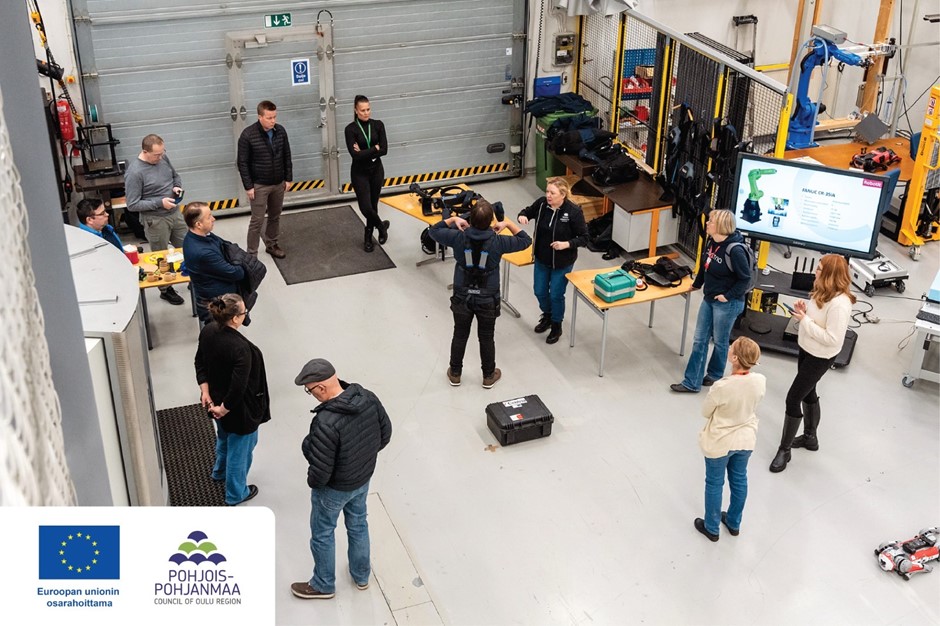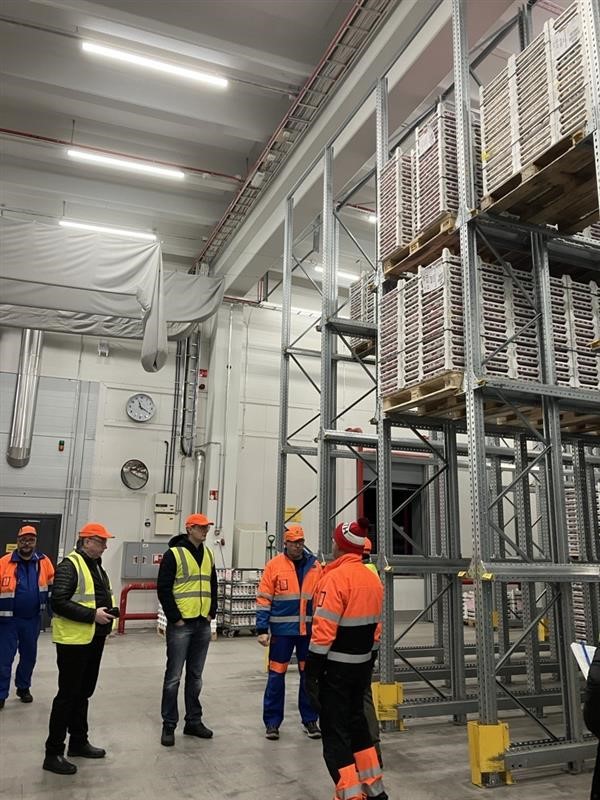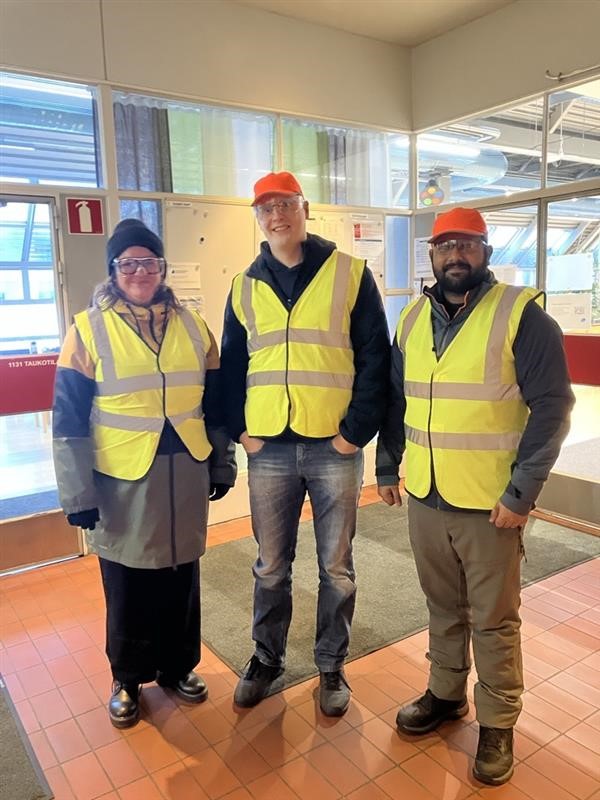Ajay Sharma
Anu Kamau
Markus Paananen

Led by Centria University of Applied Sciences, RoboFlex supports local industry and organizations by expanding knowledge and promoting the use of mobile robotics and exoskeletons while creating solutions to make them work seamlessly together through fleet management. The project will emphasize a ”test before you invest” approach, allowing companies to explore and evaluate new technologies before committing, helping to increase efficiency, competitiveness and technological leap.
Project kickoff
The project officially commenced with a kickoff event that took place in Ylivieska in December 2024. Robokahvit was organized together with Robocoast EDIH project, and the event brought together people from different sectors. Participants were interested in new technologies and how they could be applied to different environments and needs.
At the event, project managers Markus Paananen and Jonna Björk talked about the RoboFlex and Robocoast EDIH projects, and how the activities and outcomes can be used by companies in the region. Minna Laine from Meditas was present at the event to demonstrate different types of exoskeletons, and participants could also try them out. In addition, participants had the chance to learn about Centria’s RoboLab and DroneLab’s technologies and development work. The kickoff event was successful and gave us a good start for the project and co-developing.

Understanding the landscape
To get a better understanding of the current state of automation in companies in the region, the RoboFlex team recently made several company visits across Northern Ostrobothnia. These visits were important in conducting market research and gathering information on the state of robotics in various sectors such as production, packaging, storage and transport. An important objective was to assess how robotics and external skeletons can be integrated to address real challenges in industry.
The feasibility study that followed confirmed the suitability of RoboFlex’s objectives to the current requirements of industry and logistics. The challenges identified during these visits are now serving as the project’s main signposts, providing a clear direction for the development of customized technical solutions and demonstrations.
While the industrial sector is a key focus, RoboFlex aims to promote the uptake and use of new technologies also in the social and health sectors. Plans are underway to conduct surveys, roadshows and demonstrations featuring exoskeletons and mobile robotics. These efforts will help assess their usability and adaptability in real-life settings, particularly in areas like elderly care, rehabilitation and assisted mobility.

What’s next?
To bridge the gap between innovation and application, the RoboFlex team has already begun solution development activities. These will be tested and fine-tuned in real factory environments to validate their effectiveness and adaptability. Feedback from companies is important and can be used to develop appropriate and scalable robotics applications.
The project will carry out exoskeleton trials to test the suitability of exoskeletons for different working environments and tasks. The trials will provide up-to-date information on exoskeletons for companies in the region.
As RoboFlex moves forward, the project team is excited to collaborate with more organizations, share findings and co-create robotic innovations that can make a real difference for companies. Whether it’s streamlining production lines or supporting healthcare workers, RoboFlex is here to build a more adaptive and robotic-friendly future for Northern Ostrobothnia.
The RoboFlex project, funded by the Oulu Regional Council (ERDF), aims to accelerate the adoption of robotics and automation in North Ostrobothnia.
Ajay Sharma
RDI Expert
Centria University of Applied Sciences
Tel. +358 50 407 1534
Markus Paananen
RDI Expert
Centria University of Applied Sciences
Tel. +358 50 303 5541
Anu Kamau
RDI Expert
Centria University of Applied Sciences
Tel. +358 40 624 7952

